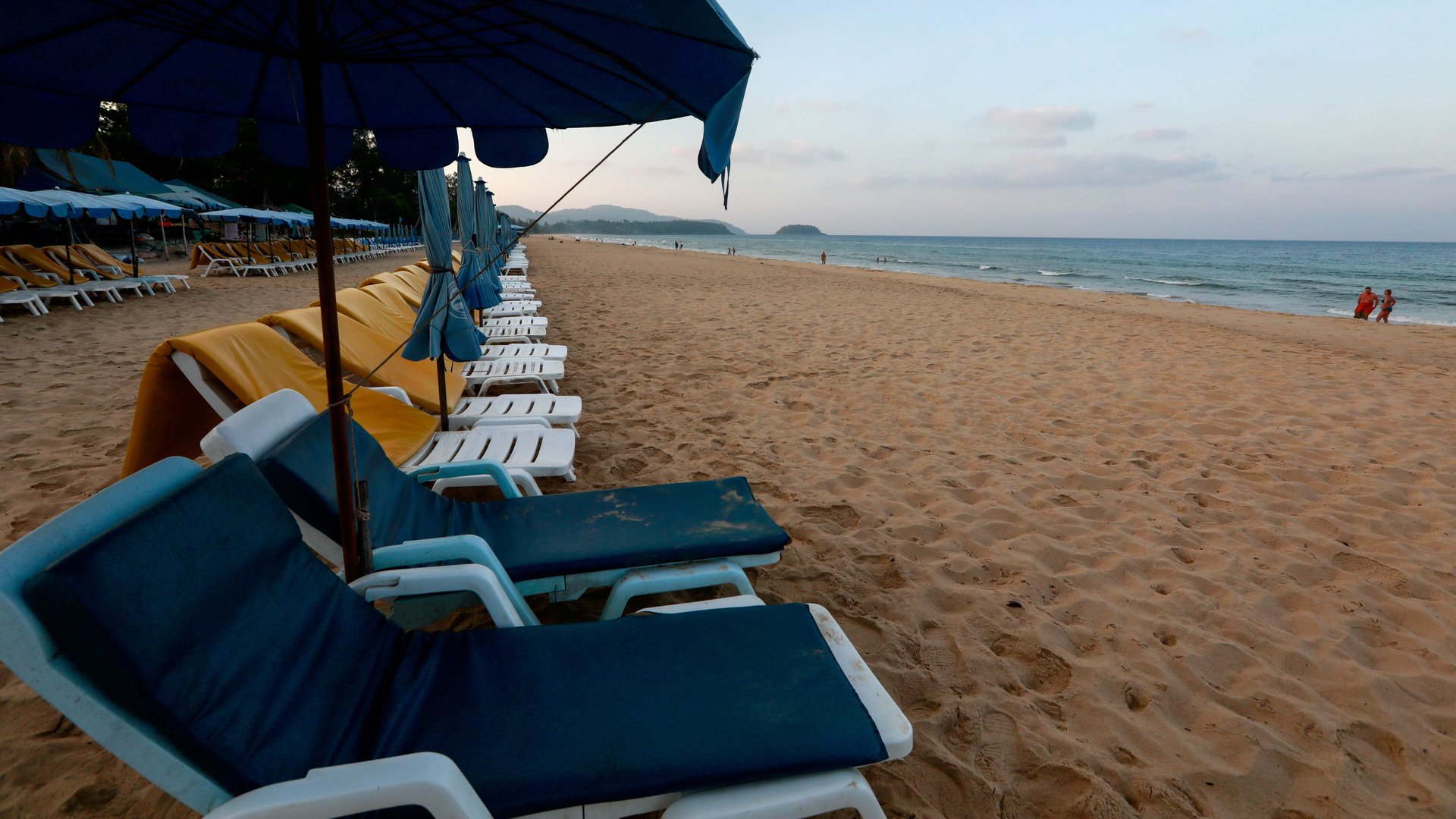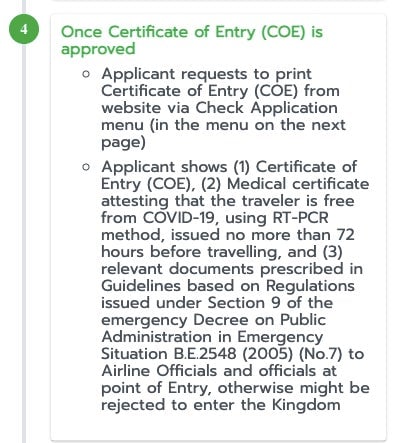Thailand, battling a third wave, is opening Phuket to quarantine-free tourism
At the end of 2020, Thailand introduced golf quarantines and long-stay visas to restart international tourism, but a second wave quickly shut down that effort. Now it can wait no longer. From tomorrow (July 1), the Thai beach destination of Phuket will begin welcoming vaccinated tourists for quarantine-free holidays, even as the country continues to battle a third wave of Covid-19.


At the end of 2020, Thailand introduced golf quarantines and long-stay visas to restart international tourism, but a second wave quickly shut down that effort. Now it can wait no longer. From tomorrow (July 1), the Thai beach destination of Phuket will begin welcoming vaccinated tourists for quarantine-free holidays, even as the country continues to battle a third wave of Covid-19.
“I know there are some risks but this is the right direction for Thailand,” said prime minister Prayuth Chan-ocha earlier this month as he set out at 120-day timeline to fully open the country to tourism “so that people may return to earning a living once again.”
It’s nearly impossible to overstate the importance of international tourism to Thailand’s economy. According to the Bank of Thailand, the country’s monetary authority, spending by foreign tourists normally accounts for 11% of GDP, while the industry as a whole contributes to 20% of Thailand’s employment.
But things are far from normal.
Tourist arrivals, which had reached nearly 40 million in 2019, reached only 26,000 from January-April this year. And from making up nearly 60% of hotel guests in peak months in 2019, foreign guests counted for just 1% of overall stays that month, according to official data.
“Anything is better than what we have now,” Bill Barnett, managing director at C9 Hotelworks, a Phuket-based hospitality consultancy and an advisor to the Phuket Tourism Association. “If one tourist comes, that is one more than we have now.”
What are the travel restrictions for the Phuket sandbox?
Thailand is calling the quarantine-free experiment the “Phuket sandbox,” and hopes that if it’s successful, it will pave the way for reopening the country more widely to foreign tourism.

Passengers who have stayed a minimum of 21 days in some 66 low to medium-risk countries such as Australia, Hong Kong, China, UK, and the US will be allowed to enter Phuket quarantine-free. They must apply for a Certificate of Entry from their local Thai embassy, which should take about three days to process (if you need a visa to travel to Thailand you have to apply for that first, but many eligible countries are visa-exempt for short-term stays). Here’s a step-by-step look at the process.
“It’s still a bit frantic,” said Barnett, noting that applications for the certificates only opened on Monday.
The official rules for the sandbox scheme were published in the Thai Royal Gazette June 29. All passengers to Phuket must:
- show proof of of having received two doses of a WHO-approved Covid-19 vaccine at least 14 days before travel
- produce a negative RT-PCR taken within 72 hours before departure
- download and enable location sharing on a designated contact tracing app throughout their stay
- have a Covid-19 health insurance policy with a minimum coverage of $100,000
- have proof of a booking in a hotel certified for participation in this travel program
There are also a host of conditions that could lead to the program being suspended, such as if Phuket’s weekly new infections reach 90, or if the hospitalization rate reaches 80% of the local health system’s capacity.
Kamal Parekh, the director of Bangkok-based Aaryan Tours and Travel, said that although inquiries from foreigners had increased in the wake of promotion of the Phuket plan, the regulations around the plan caused many to lose interest. Parekh noted that the majority of the agency’s customers tend to be from India, who make up about 5% of Thailand’s foreign tourists but are not eligible for this program due to the country being categorized as high-risk.
The Tourism Authority of Thailand is hoping the sandbox program can attract 100,000 tourists between July and September, and generate revenues of close to 9 billion baht ($280 million).
That may be optimistic. The Bank of Thailand estimated in March that if the country saw a third wave of coronavirus, as it is currently in the midst of, then tourist arrivals would likely be no more than around 100,000 for the year, and the country would see an economic contraction of 0.5 percent. And that was not the worst-case scenario.
Success depends on Thailand’s vaccine rollout
The success of Thailand’s travel reopening plan is going to be highly dependent on the country’s goal of administering at least one shot of the Covid-19 vaccine to 70% of its population of 66 million by the end of this year. Its mass inoculation drive began quite late, starting only last month, well into the third wave.
Thailand now hopes to speed things up with the procurement of 100 million doses from six suppliers this year including the Astra-Zeneca vaccine, which is being made in Thailand by Siam Bioscience, a company owned by king Maha Vajiralongkorn, as well as CoronaVac from Chinese biotech firm Sinovac. It aims to scale up to administering 10 million vaccine doses a month from July, and to provide a second dose to 70% of Phuket’s population of about 470,000 the same month.
Meanwhile, as Phuket opens, Bangkok and other parts of the country brought back partial lockdowns, which includes restrictions on the movement of construction workers, and a ban on in-door dining. As of early June only 4% of the country had received even one dose, according to the Guardian.
Chinese tourists won’t return just yet
Part of the way you reopen tourism is to make it easier for travelers to arrive—but it has to be easy for them to get back too. Earlier this month, British travelers to Portugal scrambled to go home after the UK changed the country’s risk level, meaning families would have to quarantine at home upon their return.
Anthony Lark, president of the Phuket Hotel Association, which collaborated with the Thai government to develop the sandbox idea, said the hotel association is aware that quarantine upon return will be a deterrent for some visitors—including those from China, who account for more than 25% of Thailand’s annual foreign tourists.
“There are maybe 40 countries that Thailand regards as low-risk, however in reality there are only seven or eight of those countries that don’t require you to quarantine when you go back home,” noted Lark.
China has some of the strictest policies for entering travelers, including its own nationals, and that can result in weeks of institutional quarantine and invasive testing. These rules are likely to continue until 2022, the Wall Street Journal has reported.
If China were to relax its travel restrictions and open its borders, alling Chinese travelers to get back home easily from Phuket, “that would make all the difference,” said Lark.
Travel’s new foe: The Delta variant
The approval of vaccines late last year led to expectations of a rebound in international travel this year, but variants have upset those plans. According to the UN World Tourism Organization, global tourism was down by 87% in January 2021 compared to the same month last year. New travel restrictions keep surfacing, particularly around the Delta strain, which is re-introducing some of the alarm felt last year when the pandemic was just beginning.
Earlier this year the UK barred flights from India, while Hong Kong yesterday banned passenger flights from the UK due to concern over the Delta variant. Meanwhile an Australia-New Zealand travel bubble that began in April was suspended over the weekend amid new outbreaks linked to the Delta variant.
Lark says his own fears include the possibility that Covid-19 cases could “slip through the net,” particularly if some travelers turn to doctored vaccination proofs. But he also hopes Thailand’s experiment might help other countries in the region figure out their own tourism reopening plans.
“We are the first destination in Asia-Pacific to have done this, so any mistakes that are going to be made by other countries will probably occur here first,” said Lark.